20 Science-Backed Facts for Why We Kiss
Well, it feels great. But that's just the beginning.
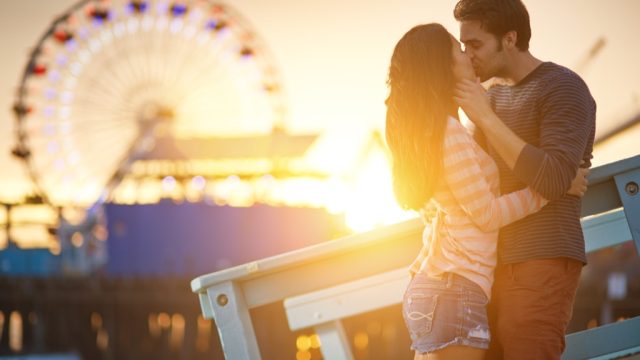
Kissing someone you really like is one of the most intensely enjoyable experiences that life has to offer. But if you really think about it, expressing desire by sloshing our tongues in each others' mouths is kinda weird, especially considering that humans are one of only two animals on the planet who actually make out. How did this behavior develop, and what is its purpose? How long have we been kissing? Is it a universal way of expressing love and affection? How come women often seem to be more interested in making out than men? And why is it that something that feels so good with one person can feel so gross with someone else?
The science of kissing, which is known as philematology, has been around since the nineteenth century, and yet scientists are still divided on some of these questions. But the good news is that it's yielded quite a few fascinating theories on why we kiss, especially since this area of research is really heating up lately. So read on to find out everything you've always wanted to know about the strange human need to lock lips. And for more on the science of attraction, learn The Age When Men Are Most Likely to Cheat and The Age When Women Are Most Likely to Cheat.
1
It's chemically reinforced.
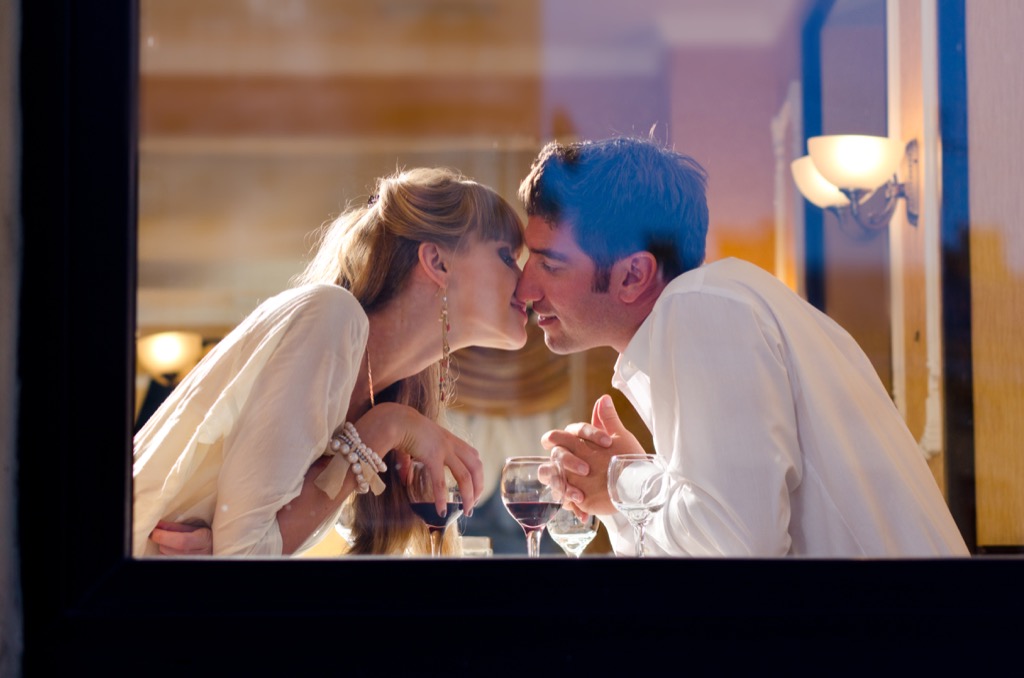
When you make out with someone you like, your brain releases the three so-called feel-good chemicals: dopamine, oxytocin, and serotonin, all of which light up the pleasure centers of the brain. In fact, according to neuroscientists, "the dopamine released during a kiss can stimulate the same area of the brain activated by heroin and cocaine." That's why you feel that same euphoric rush, but the downside is that it's also why it's so addictive.
2
It's a learned behavior.

You might think that kissing is a universal way of expressing desire, but a 2015 study actually found that there are several cultures in sub-Saharan Africa, New Guinea, and the Amazon where people do not engage in the romantic-sexual kiss, thereby lending credence to the argument that the kiss is a learned trait rather than a human instinct. Regardless of whether we can thank nature or nurture for this type of kiss, however, it's estimated that an astonishing 90 percent of the world engages in the practice. So, yeah, it's pretty popular.
3
Or it's instinctual.

The proverbial jury is still out on whether kissing is an evolutionary trait or a learned behavior. Those who follow the former school of thought that says it is instinctual like to bring up the bonobo ape, who engages in the same kind of lip-locking we do, and who we share 98.7 per cent of our DNA with.
4
It was borne out of the act of eating food.
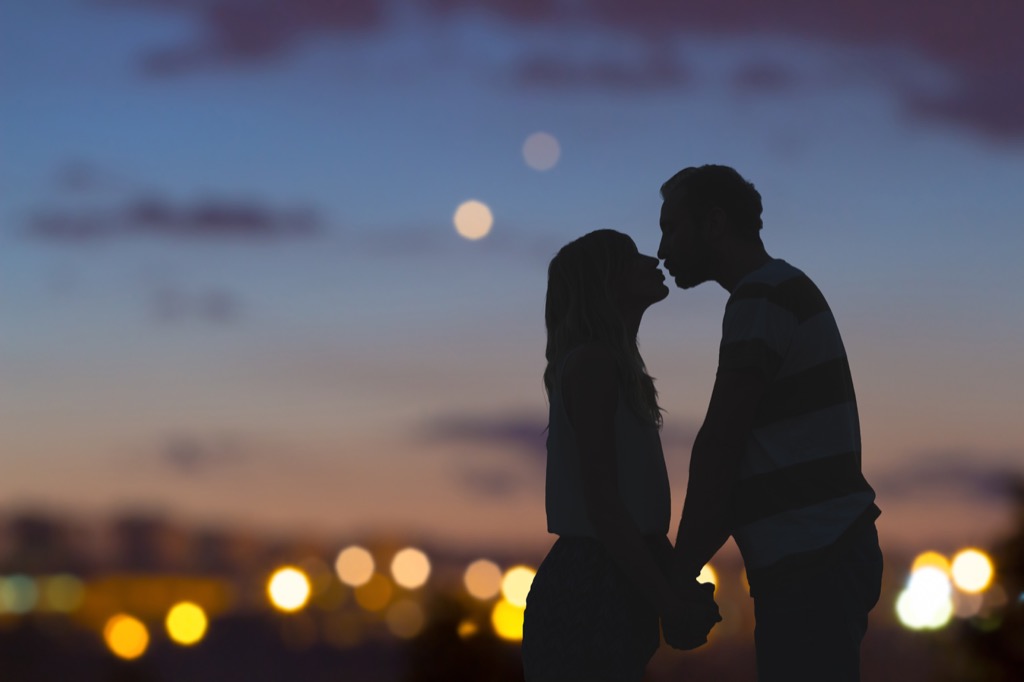
Another popular theory, however, is that the romantic-sexual kiss developed from the practice of "kiss-feeding," in which a mother chews up her food and puts it into the mouth of her baby using her own mouth. It's something you see animals do all the time, and it appears it was common among humans back in the day as well. Scientists are still trying to sort out how we made the leap from kissing our babies in order to feed them to kissing our lovers in order to get it on, but they do think the practice of kiss-feeding is what first made us think of lip-locking as an expression of care and love.
5
It helps your choose a mate…
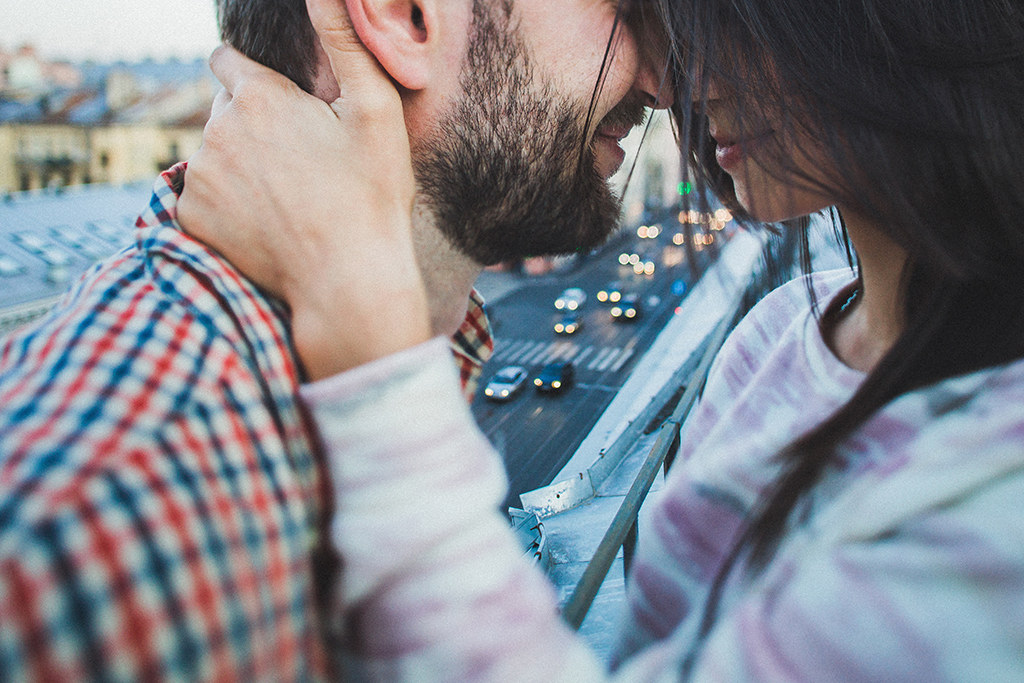
From a biological perspective, the primary purpose of kissing is to help you figure out who you want to have sex with. When you swap saliva, you end up exchanging information about your genetic makeup, thereby letting your body know whether or not the two of you stand a good chance of producing healthy offspring. Your mouth reveals a lot about how healthy you are, which is why kissing someone who is conventionally attractive but has bad breath is such a turn-off.
6
… but more so if you're a woman.

A fascinating 2013 University of Oxford study found that women rated kissing as generally more important in relationships than men. Evolutionary scientists believe this is because women have to be more selective than men in choosing a partner for the process of reproductive mating, and therefore biologically place greater emphasis on the genetic information exchanged in a kiss.
7
Or just really, really ridiculously good-looking.
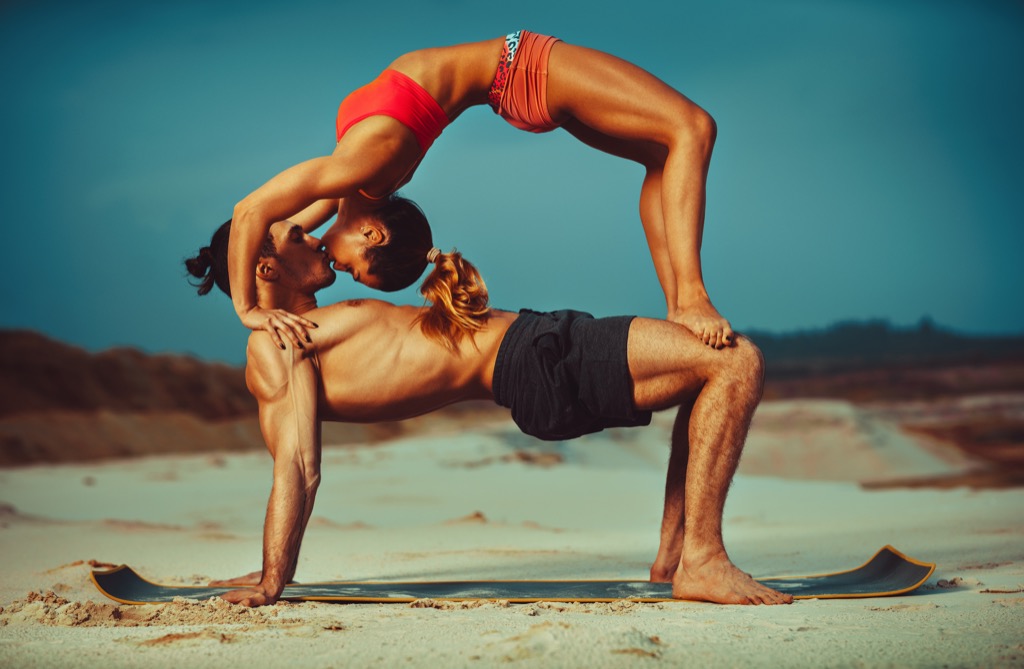
In the same study, people who rated themselves as attractive, as well as those who claimed to have a lot of casual sex, also placed a lot of emphasis on the importance of kissing. Again, the theory here is that people who have more options have the luxury of being more selective in choosing someone to sleep with, and therefore more likely to rely on the DNA test of the romantic-sexual kiss.
8
It turns you on.

A study of 1,041 college students at the University at Albany found that women and men kiss for different reasons and prefer different techniques. Men, for example, apparently prefer kisses that are 33 percent wetter and include 11 percent more tongue than women, which the researchers believe might be due to the fact they want to drown the woman in the arousal-enhancing hormone testosterone.
Since women use kissing as a biological screener, it also makes sense that men would want to give women more saliva to work with to help them hurry up and decide whether or not they want to have sex. And for some lip-locking inspiration of your own, check out the 30 Most Iconic Kisses of All Time.
9
It's a tool for seduction.
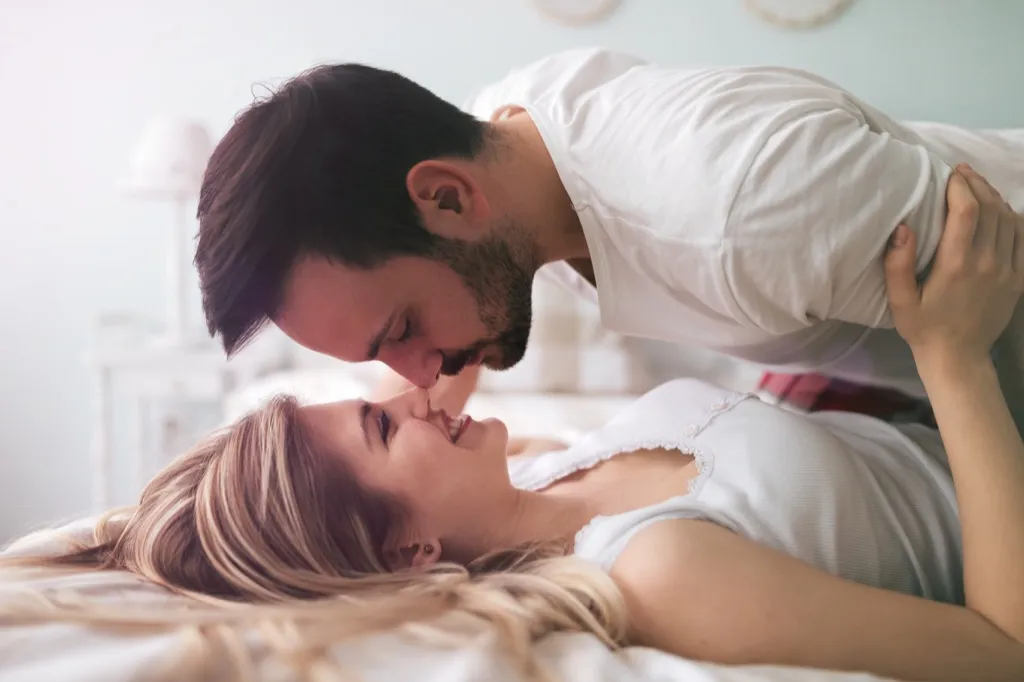
The University of Albany study also found that while only 15 percent of women said they would have sex with someone without kissing them, a whopping 53 percent of men said they'd be happy to skip it and go right to the main event. This suggests that, for many men, kissing is less of a biological imperative and more of a technique to get the woman aroused.
10
It changes your hormones.
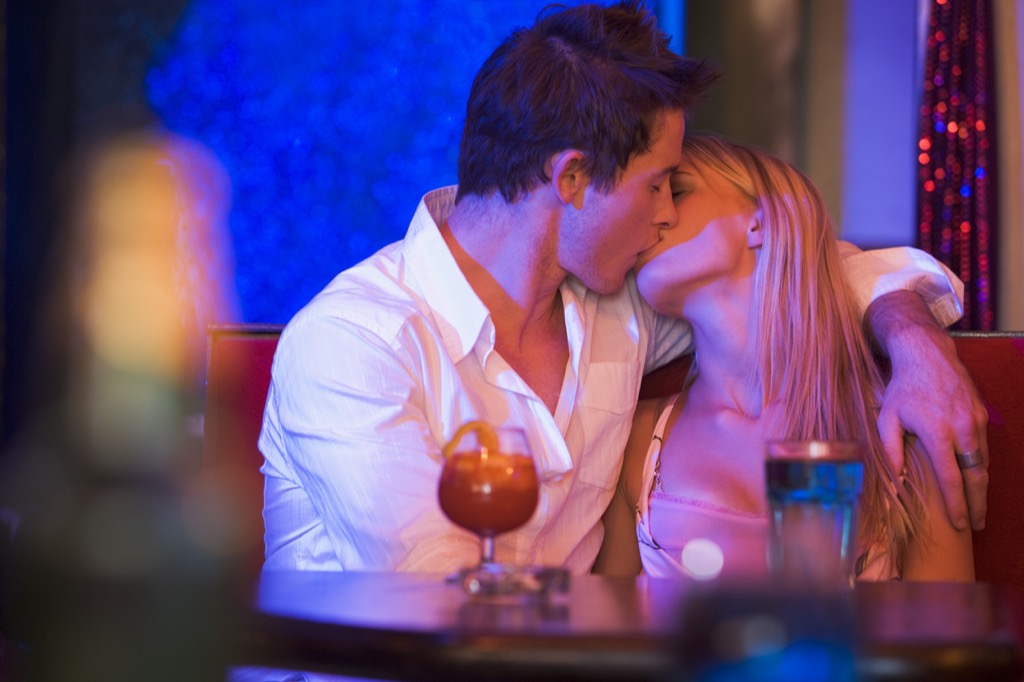
Studies have found that women are more likely to choose a mate who seems genetically healthy and fit when they are the most fertile part of their menstrual cycle, and that they are likely to place a greater emphasis on kissing while ovulating. Which makes sense if you agree with evolutionary scientists and think human desire subconsciously comes down to the need to reproduce. For more on this, check out Here's Why Women Are Attracted to Square-Jawed Men.
11
It helps you bond.
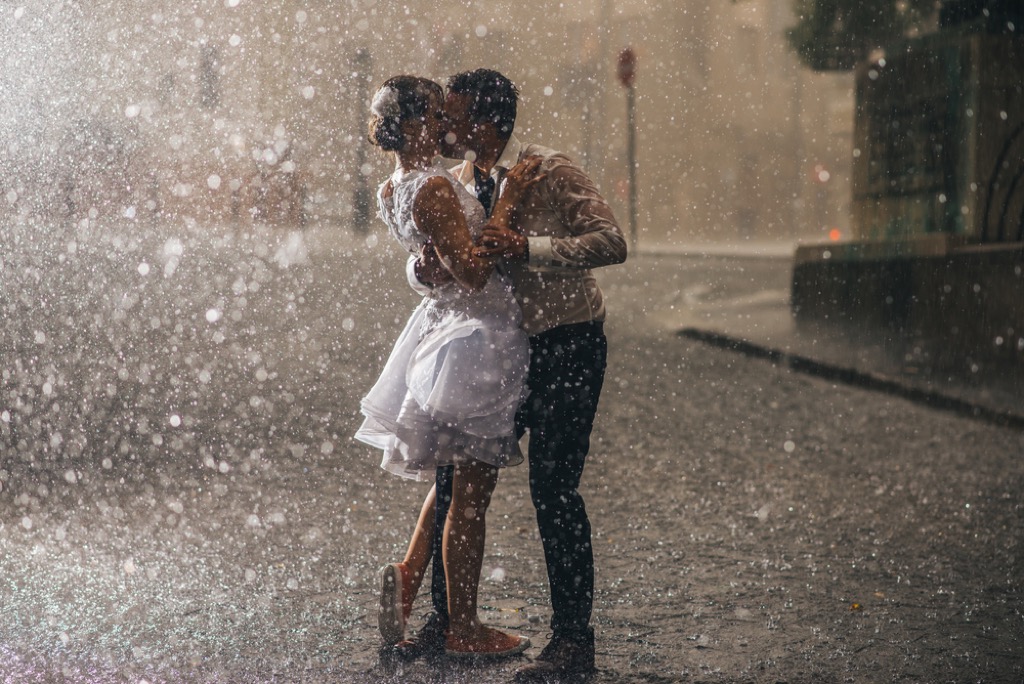
It's not all about making babies, though. Don't forget that one of the main chemicals released while kissing is oxytocin, the hormone released by mothers when they are breastfeeding their infants. And while holding hands has been scientifically proven to have enormous health benefits, nothing beats kissing.
12
It helps you slim down.
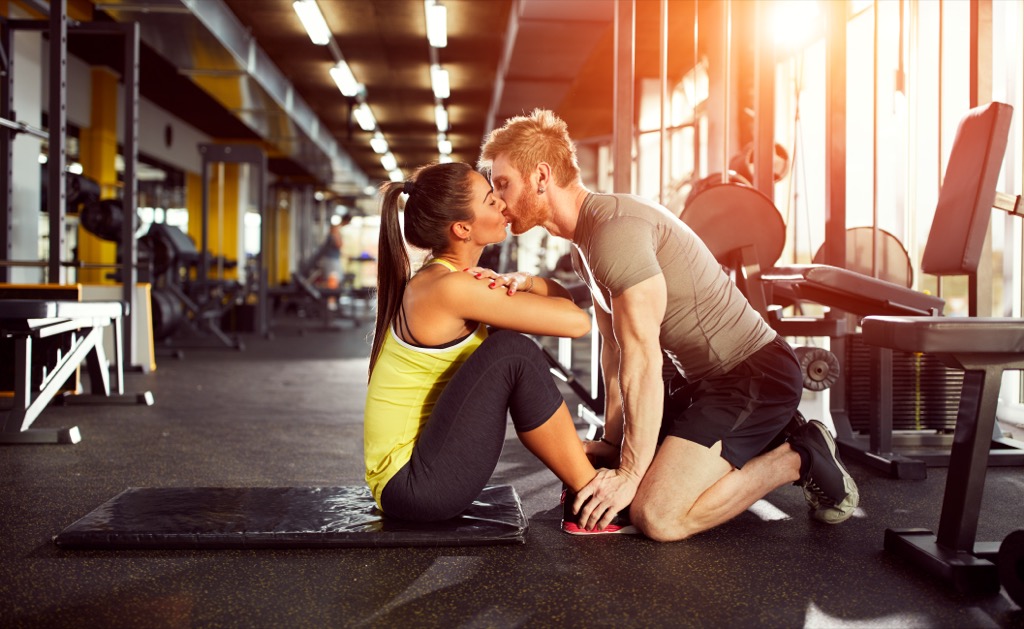
Making out works 34 different face muscles, which is why it's believed to burn two or three calories per minute. And, for the record, a recent study found that, contrary to popular belief, having sex won't negatively impact your workout.
13
It boosts your immunity.

In terms of pleasure, kissing can and often is compared to taking drugs. But the good news is that, unlike substance abuse, kissing is actually incredibly good for you. Several studies have indicated that, somewhat counterintuitively, swapping bacteria can help people develop antibodies that fight infections.
14
It makes you happy.
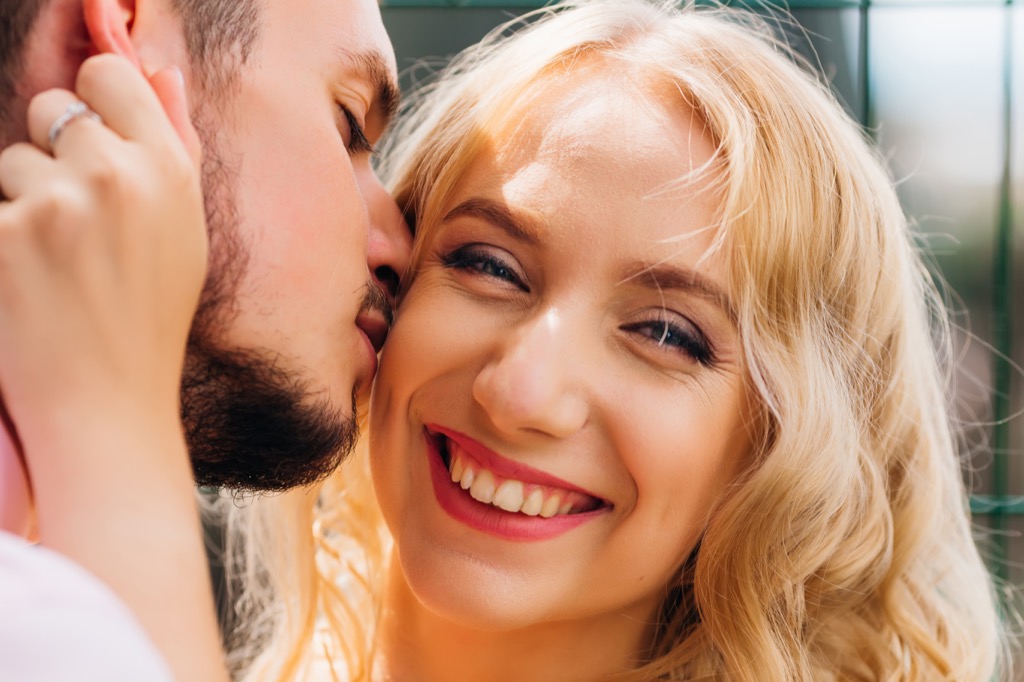
Like exercise, kissing gives you tons of endorphins, and, to quote the inimitable Elle Woods, endorphins make you happy. To get tips on how to be happy regardless of whether or not you have a kissing buddy, well, I Took Yale's Happiness Course and Here's Everything I Learned.
15
It's good for your health.
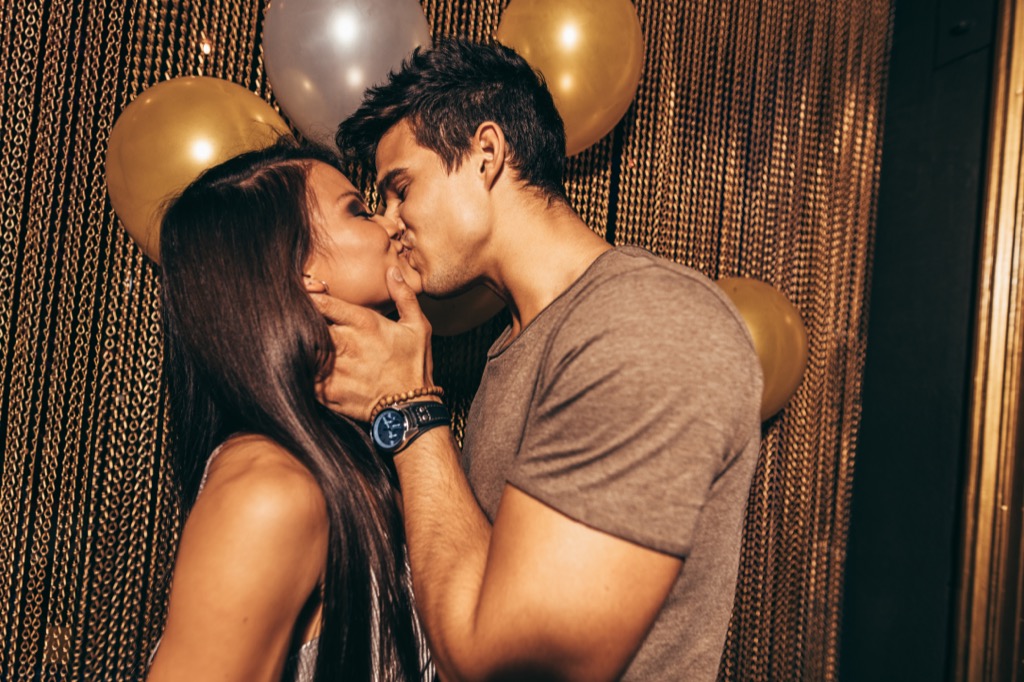
In addition to the last three points, kissing has also been proven to lower cholesterol, as well as making us feel less stressed by lowering our cortisol levels. In terms of health, it's almost as good as getting a dog!
16
It makes you live longer.

Given how good it is for you, it's no wonder that kissing tends to increase your lifespan. One study even claims that men who kiss their wives on the cheek every day before work live an average of five years longer than those who don't. For more tips on how to live a long, healthy life, check out Harvard Says Doing These 5 Things Will Extend Your Life.
17
It's Good for Your Teeth
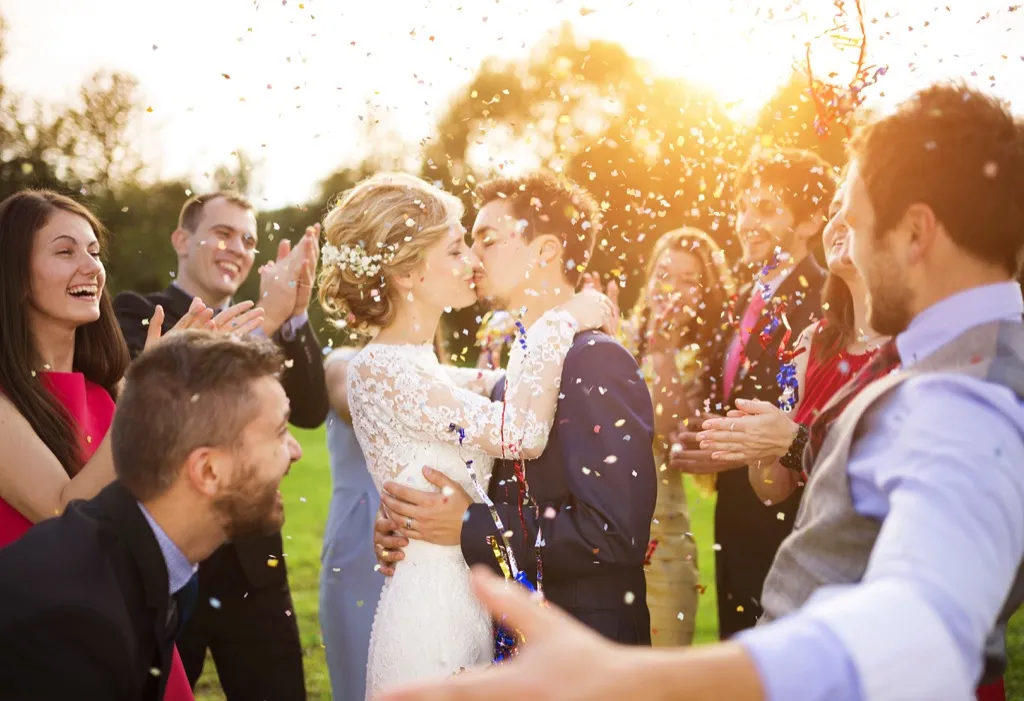
A 10-second session of French kissing can transfer as much as 10 million bacteria, and not all of them are good ones. But if you're both healthy, kissing is actually great for oral health since it increases the flow of saliva and rinses out leftover food particles.
18
It creates a biological profile.
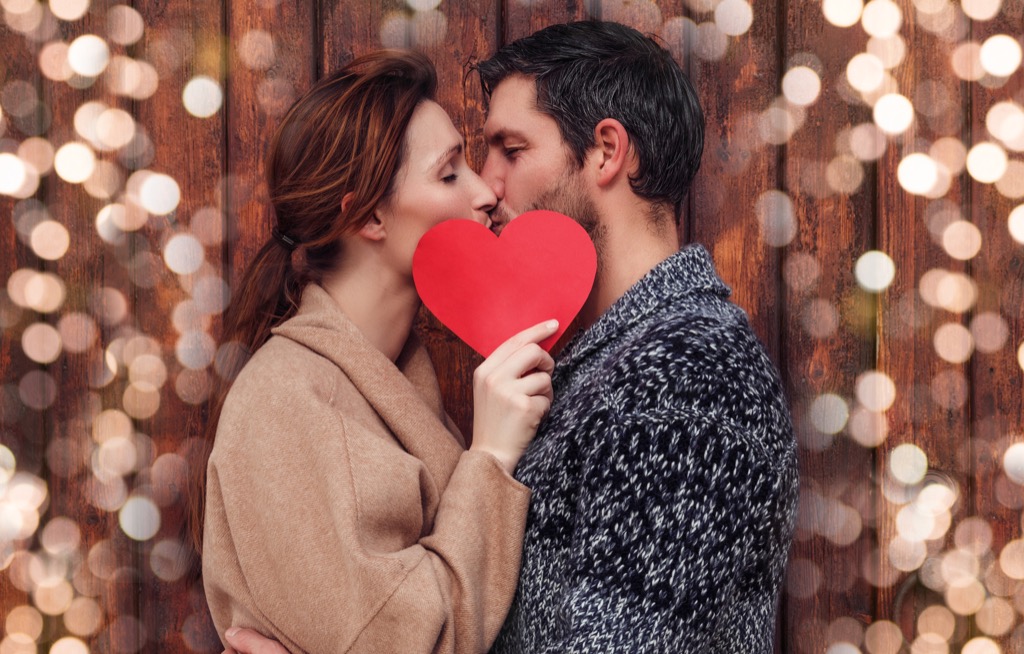
Smell is a very powerful emotion when it comes to attraction, and previous studies have found that women are attracted to men who smell like their fathers. Scientists therefore suggest that making out, just like rubbing noses against one another, developed out of a desire to get close enough to really inhale your partner's scent.
19
It helps your kids get healthy.
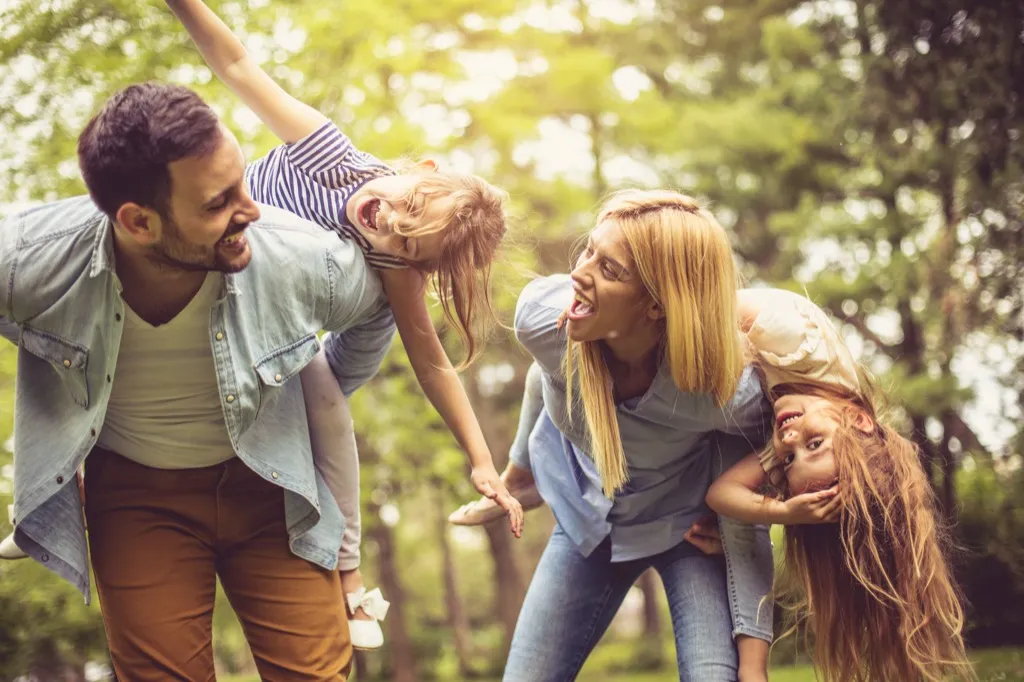
To summarize, the main reason we kiss, at least from en evolutionary perspective, is s we can further the human race. Biologically, it's useful for someone to procreate with someone whose immune system is very different from theirs, and kissing immediately reveals whether or not two people are genetically compatible.
20
It's been around forever and ever.
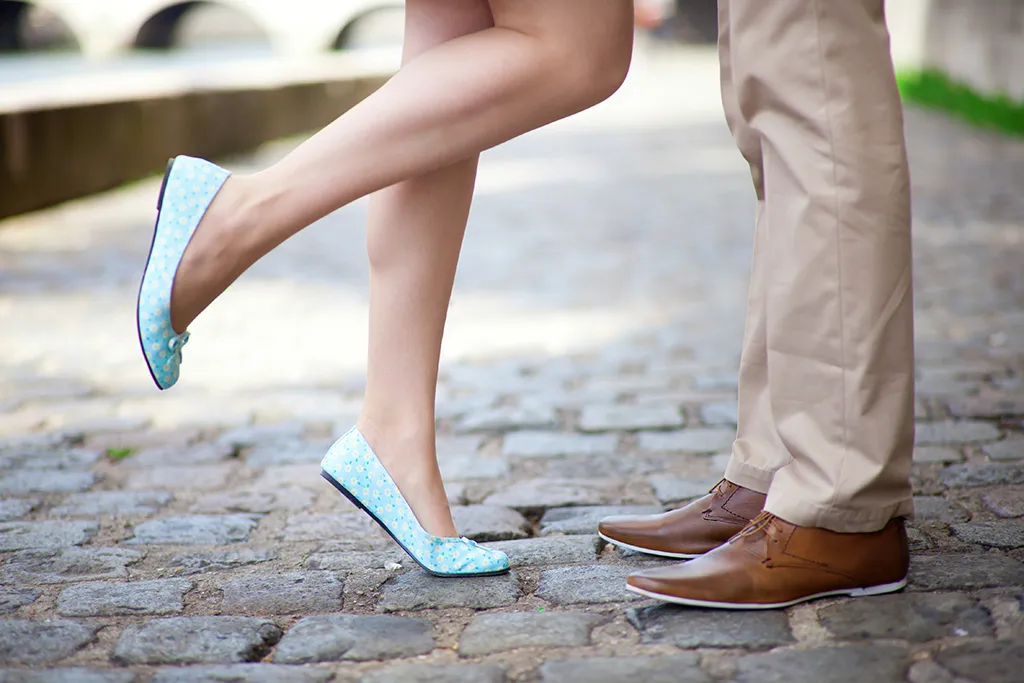
However it started, the romantic-sexual kiss goes pretty far back in history. According to Vaughn Bryant, an anthropologist at Texas A&M University who specializes in the history of the kiss, and who believes kissing is a strictly learned cultural pattern, the first references to kissing appeared in 1,500 B.C.E. in Vedic Sanksrit literature, where it was referred to as inhaling each other's souls.
Back then, it was described as rubbing and pressing noses against each other, so it wasn't quite in the same format that it's in now, but Bryant and other anthropologists believe that's how it first became a thing. And they definitely pieced together the fun of making out by the time the Kama Sutra was written by an ancient Indian philosopher sometime between 400 BCE and 200 CE.
To discover more amazing secrets about living your best life, click here to sign up for our FREE daily newsletter!





















